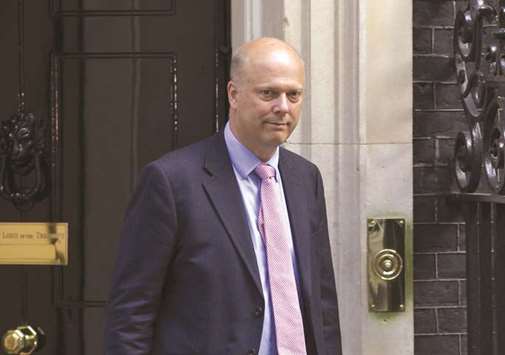Plans to make the railway network faster, greener and cleaner by electrifying lines have been scrapped by the government after massive budget overruns, prompting fury at “years of broken promises”.
The plans to modernise the line from Cardiff to Swansea, the Midland mainline and tracks in the Lake District were dropped yesterday after Network Rail spent huge sums on engineering works, with costs in the Great Western region alone going as much as £1.9bn over budget.
Network Rail’s electrification works around the country, most notably on the Great Western mainline from London to Swansea, which started in 2014, were described as a vital upgrade that would bring cleaner, faster and more reliable services for passengers.
However, the government claimed yesterday that passengers would benefit from “modern bi-mode trains” instead, and would no longer have to put up with “disruptive electrification works” and “intrusive wires and masts”.
Most of the 122 InterCity Express trains ordered from Hitachi at a cost of £5.7bn will now have to be bi-mode, fitted with diesel engines to run on non-electrified lines. The cost of the upgrade has not been confirmed, and the bi-mode trains are believed to be less efficient than purely electric due to the additional weight of the engines and smaller capacity.
The news was met with anger in Wales in particular, after the government had given repeated guarantees that work would be concluded despite the problems Network Rail had experienced on Great Western. The cost of electrifying the line has more than tripled from its original budget to £2.8bn. A Welsh government spokesperson said the “disturbing news ... amounted to years of broken promises”.
The government announced in 2015 that it was “pausing” electrification of the Midland mainline, but insisted the work would be completed. The announcement that the line to Nottingham and Sheffield will be served by bi-mode trains using diesel engines confirmed that Network Rail’s budget overruns will leave large parts of the country without the “electric spine” that the government had boasted would bring more capacity and increase jobs and investment.
The Transport Secretary, Chris Grayling, told the Commons in a written statement that the Hitachi trains – ordered in a deal first announced in 2009 – meant electrification was no longer needed.

Grayling: controversial decision
